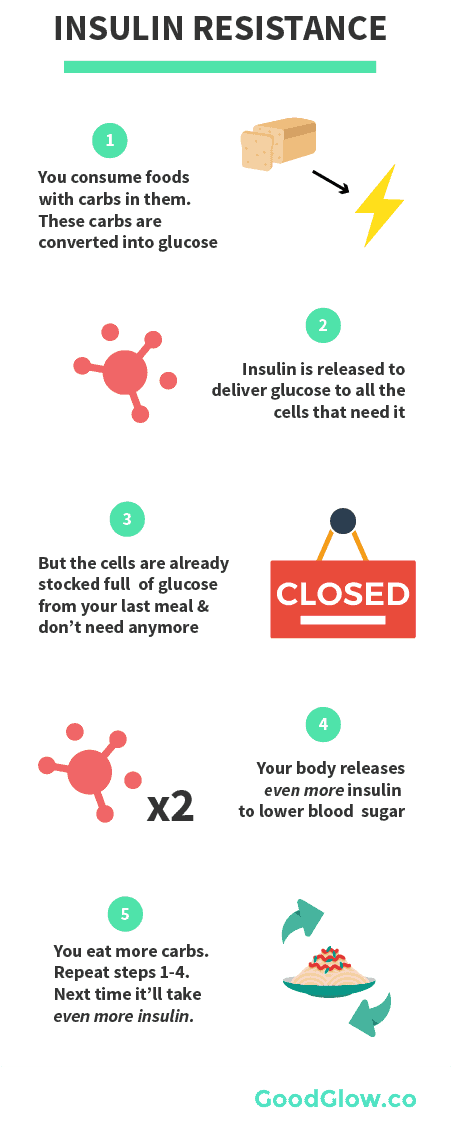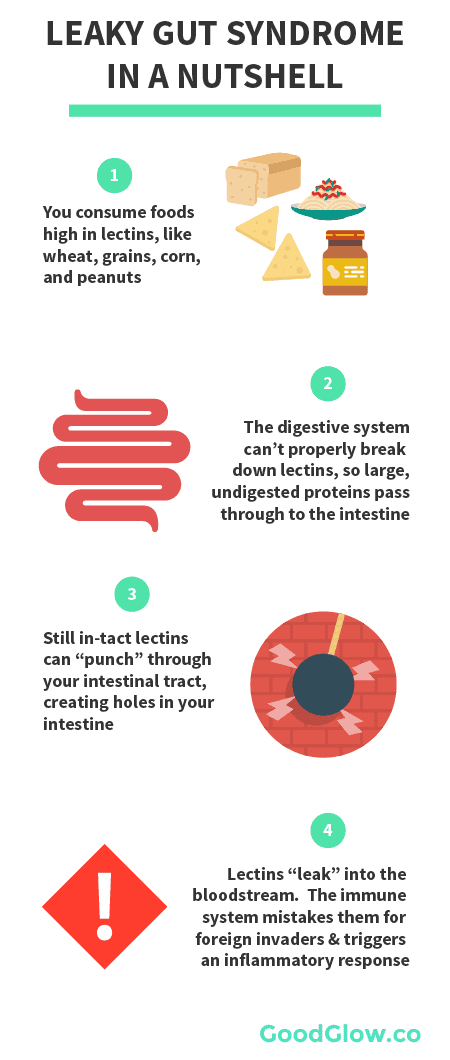When it comes to foods that can cause acne, eggs are one of the most interesting. Often lumped in with dairy, eggs tend to get the short end of the stick when it comes to healthy, acne-free eating.
Interestingly, celebrities like Natalie Portman say cutting out eggs (and dairy) cured their adult acne. A lot of other folks on various forums have reported that cutting out eggs also led to a massive reduction in dandruff, dermatitis, and eczema.
On the flip side, eggs can be a nutritional powerhouse – they contain a massive amount of crucial vitamins and minerals for clear skin and a healthy, dandruff-free scalp including biotin, riboflavin, and vitamin A.
So, who do you believe? Are eggs really as evil as they’ve been chalked up to be? Are they what’s causing your adult acne and dermatitis?
Let’s dig into some of the nutritional pros and cons of eggs, as well as who should (and who shouldn’t) consume eggs for clear skin.
If you want to save time and learn the exact nutrition plan I used to clear my acne check out GoodGlow’s Clear Skin Resource Kit.
The Good: Egg Yolks Are A Nutritional Powerhouse
The nutritional content of egg yolks and egg whites are totally different – in fact, while egg whites are generally problematic for acne and other skin conditions, egg yolks are an acne-fighting powerhouse.
Egg yolks are loaded with more health benefits than just about any other food, especially when it comes to acne…
1. Egg yolks are rich in vitamins, minerals, and antioxidants that fight acne and dermatitis
Vitamin A
Getting enough vitamin A is crucial for clear skin. Vitamin A touches almost every root cause of acne:
- Reduces the size of the sebaceous gland (produces oil that clogs pores)
- Improves wound healing (can help heal acne scars faster)
- Acts as an antioxidant that protects the skin against free radicals
- Helps regulate the skin shedding process and ensures dead skin cells don’t clog pores
- Reduces inflammation
There’s a reason vitamin A is #1 on our top 9 supplements for acne list.
A single omega-3 enriched egg contains 300 IU of vitamin A in retinol form. Retinol vitamin A is ready to be absorbed and used by the body right away, whereas previtamin A (beta-carotene) needs to be converted into retinol vitamin A. There’s nothing wrong with beta-carotene, but it’s really deceiving: on average, only about 8% of beta-carotene from vegetables gets converted into usable vitamin A.
What’s this mean for acne?
Only a fraction of that precious vitamin A you’ve been consuming from vegetables goes towards fighting acne.
Fortunately, eggs are one of the best sources of retinol out there, alongside liver, salmon, and some cheeses.
B-Vitamins: Biotin and Riboflavin
Biotin and riboflavin are two nutrients that are crucial not just for acne, but also for dermatitis, fungal acne, dandruff, and eczema.
If you struggle with fungal acne (pus-filled whiteheads as opposed to deep cysts) or dandruff, the root cause very well may be a biotin deficiency, especially if you’re consuming a lot of egg whites or a low-carb, high-fat diet. Even if you use a fungal acne-specific facial cleanser, a biotin deficiency will make it extremely difficult to clear your fungal acne breakouts.
The reason for this is simple. In my book, Unmasking Acne, I discuss the importance of both of these B-Vitamins on skin and hair health:
“Both biotin and riboflavin are used in lipid transport, mobilization, and storage, and are crucial in making sure that your skin is healthy, moisturized, and able to combat natural threats.
Without adequate amounts of biotin and riboflavin, the skin becomes cracked, dry, scaley, red, and suspectable to malassezia overgrowth that leads to fungal acne.
Because they are required for fat absorption, individuals consuming a high-fat diet (carnivore/ketogenic/low-carb) will require increased amounts of biotin.”
Without adequate amounts of biotin and riboflavin, your skin becomes the ideal breeding ground for fungi and yeast overgrowth, and a wide array of different skin conditions.
While egg yolks are high in biotin and riboflavin, egg whites have a compound within them that actually binds to biotin and prevents you from absorbing biotin.
This is a huge reason why eggs are a double-edged sword when it comes to skin and hair conditions.
Vitamin D
Eggs stand alongside sardines, salmon, and tuna when it comes to vitamin D content.
I don’t need to tell you how important vitamin D is for your skin – just look at the difference in your skin when you get regular sunshine.
Vitamin D controls the expression of over 1,000 different genes in the body, from chronic inflammation to insulin secretion.
A single omega-3 enriched egg contains 120 IU of vitamin D. Most adults should aim to get 500 IU of vitamin D per 25lb of body weight daily, which is why supplementing may be necessary.
Vitamin E
Vitamin E acts as an antioxidant, which prevents a process known as oxidation from occurring. Oxidation is a damaging process that occurs throughout the body. When sebum oil (the oil on the skin) becomes oxidized, it becomes a pore-blocking powerhouse.
That’s where antioxidants come into play. They prevent free radicals and other factors from allowing skin oil to oxidize and block pores. Vitamin E is particularly important in preventing sebum oil from oxidizing.
A single omega-3-enriched egg contains 5.03mg of vitamin E (25% DV). Along with olive oil, almonds, salmon, avocados, and a handful of other foods, eggs are among the best sources of antioxidants on the planet.

Zinc
Eggs are also moderately high in zinc, another extremely important mineral for acne:
- Assists in the absorption and transportation of vitamin A
- Protects against acne infections and UV damage
- Regulates the process of skin dying and shedding
- Protects the gut
- Improves insulin sensitivity
- Decreases stress and improve sleep quality
One study found that 30mg of zinc per day led to nearly 50% less acne after 3 months1https://www.karger.com/Article/Abstract/51728.
A single omega-3-enriched egg contains 0.60mg or 4% of the DV of zinc.
Other nutrients
Eggs also contain small amounts of various B vitamins, iron, magnesium, and even selenium, all of which are necessary for good health and glowing skin.
Selenium, in particular, helps antioxidants (like vitamin E) do their job properly. Outside of eggs, only a few other foods are solid sources of selenium.

Yet another reason to love eggs.
2. Eggs are low in carbs and high in healthy fats and protein
Long story short: When you eat carbohydrates (and some proteins), your body releases a hormone known as insulin to help transport all the energy from food to all the cells in the body that need it. This is all fine-and-dandy until you start consuming too many carbohydrates without burning off all the energy stored in your muscles and tissues. Then, more and more insulin gets released and something called insulin resistance takes hold.
Before you even know it, you’re releasing tons of insulin around the clock. Insulin is a master hormone that triggers a waterfall of other acne-causing hormones, including IGF-1, IGFBP-3, and IL-1. These hormones cause the secretion of excess sebum oil (oily skin), clogged pores, and inflammation.

Sadly, nearly half of all Americans struggle with insulin resistance. It’s no surprise rates of insulin resistance and acne are at all-time highs.
Along with intermittent fasting, limiting carbohydrate consumption is among the best things you can do for your skin when it comes to insulin.
One egg contains less than a gram of carbs, and they’re extremely low on the insulin index. Substitute your morning yogurt, cereal, and orange juice for eggs and green tea and I can guarantee you you’ll see noticeable improvements in your skin.
3. Eggs increase the absorption of vitamin E
Not only are eggs a great source of skin-clearing antioxidant vitamin E, but they also increase the absorption of vitamin E from other foods.
This study found that vitamin E absorption was 4 to 7 times higher when salads consisting of raw vegetables also contained 3 hard-boiled eggs.
Considering vitamin E is one of the most important nutrients out there for clear skin, this is a really important factor.
How Eggs Can Cause Acne
Eggs are great – they’re almost the perfect source of energy on paper.
Unfortunately, there are a few legitimate reasons that eggs can cause acne: Allergies and intolerances to eggs are extremely common and can trigger inflammation that leads to inflamed comedones (pimples). Furthermore, low-quality eggs may contain hormones and antibiotics that trigger inflammation.
Egg intolerance, your gut, and inflammation
Upwards of 1.7% of the population shows signs of egg intolerance. Common symptoms include hives, swelling, inflammation, and rashes.
There are a few reasons for this, but at the top of the list is leaky gut syndrome.
Leaky gut syndrome is exactly what it sounds like – simply put, as certain proteins enter the digestive system, they’re not properly broken down before they enter the intestine. When this occurs, these in-tact proteins can easily “leak”, or pass through the intestinal barrier into the bloodstream. When this happens the body sees the protein as a threat and fires off an inflammatory response. This inflammatory response can contribute to chronic inflammation, a condition where an overactive immune system mistakes minor acne infections for major threats and turns a harmless blocked pore into a protruding pimple.

Yikes, that’s not good. Fortunately, most proteins don’t fall into this camp and won’t leak into the bloodstream. The really problematic ones include wheat germ agglutinin (found in bread/wheat), peanut agglutinin (found in peanuts), and casein A1 (found in dairy).
Eggs are an interesting case though.
Egg whites contain something called lysozyme, which has the primary function of protecting the protein found in egg whites. The body can’t break down egg white protein as it should due to lysozyme. This leads to undigested protein entering the gut and potentially leaking through into the bloodstream.
For most healthy individuals this won’t happen, however, if you already have leaky gut syndrome, this can be a real problem. Pretty quickly you’ll be training your body to fire off an inflammatory response every time you consume eggs. The end result? A bad case of chronic inflammation and an intolerance to egg (whites).
Egg Whites Prevent Nutrient Absorption
While egg yolks are loaded with acne and dandruff-fighting nutrients, including biotin and riboflavin, egg whites actually contain a compound called “avidin” which binds to biotin and prevents the body from being able to absorb it.
This includes the biotin found in other foods, like salmon or organ meats.
Without biotin, the skin becomes cracked, dry, red, and flakey, making it the perfect breeding ground for fungal and yeast overgrowth, leading to conditions like fungal acne, dermatitis, dandruff, and eczema.
This is especially true for individuals on the keto or carnivore diet. I discuss in my book how the body’s requirement for biotin increases as consumption of fat increases:
The more fat you consume, the higher the requirements of these two B-vitamins. Hopefully, you’re starting to see why this can be an issue: in lower carb diets, carbohydrate consumption is typically replaced with higher consumption of fats, which, in turn, requires increased amounts of biotin and riboflavin. It’s no surprise that one study found that low-carbohydrate diets seem to exacerbate biotin deficiency.
A lot of folks who consume large quantities of eggs are on a keto or carnivore diet, so this can be a pretty big problem. It’s another reason why people on these diets oftentimes experience some relief from acne, but not total remission of other skin conditions like dandruff, dermatitis, or fungal acne.
The Dangers of Inflammation-Causing Low-Quality Eggs
Low-quality eggs not only have significantly fewer vitamins and minerals, but they’re also more prone to oxidation due to higher amounts of omega-6 fatty acids and lower amounts of antioxidants.
Overall, conventional eggs are a lot safer for you than other conventional meat, including non-organic beef, chicken, and farmed fish. The purpose of eggs is to act as a protective and nourishing shield for future offspring. Worst case comes to worst, a soft-boiled conventional egg is going to be safer for you than the antibiotic-ridden chicken it came from.
With that being said, consistent consumption of conventional eggs cooked with high-heat is going to pose problems for acne-prone individuals. This high heat is going to oxidize the cholesterol and make it more likely to cause damage from free radicals.
Whenever you can, get pasture-raised, omega-3-enriched eggs. This study found that they have twice as many omega-3 fatty acids and vitamin E as conventional eggs. They also have more vitamin A, less omega-6 fatty acids, and fewer hormones.
Reddit Users Discuss Eggs & Dairy’s Impact on The Skin
While I was collecting research for this article I combed through Reddit to get a better understanding of what impact Redditors saw from removing eggs from their diet. Virtually every comment I read discussed cutting dairy and eggs at the same time. Usually this drastically reduced breakouts.
“Cutting out dairy and eggs have completely annihilated my cystic acne, and going completely vegan and sugar free got rid of almost all of it.”
However, I couldn’t find a single person on Reddit who only cut eggs out of their diet and significantly improved their skin. Usually they also cut some combination of dairy, red meat, and processed foods at the same time. My opinion is that very few people are actually breaking out from eating eggs (although it is possible). If you decide to cut eggs out of your diet and see improvement try reintroducing them by getting eggs from a farmer’s market and see if that improves your skin.
The Verdict: Do Eggs Cause Acne?
I know this probably isn’t what you wanted to hear, but it’s the truth: eggs, especially the whites might cause acne depending on how healthy your gut is, how often you eat them, and whether or not you’re already allergic or intolerant to them.
In general, though, egg yolks are an acne-fighting powerhouse thanks to their rich nutritional profile of vitamin A, riboflavin, biotin, vitamin D, and zinc.
If you have symptoms of leaky gut syndrome or experience discomfort, bloating, or acne after eating eggs, then you likely either have a problem digesting egg white protein (due to leaky gut) or you’re truly allergic to them. In this case, yes, eggs are very likely to cause the inflammation that spurs acne.
If you don’t experience any negative symptoms, then eggs are generally a healthy, safe choice for your skin.
With that being said, it doesn’t mean you should go overboard on eggs if you’re eating the whites. Overconsumption of egg white protein can actually lead to egg intolerance. While your gut and your immune system might be able to handle a couple of egg whites every few days, if you go overboard and eat eggs every day it might exacerbate or even cause leaky gut, particularly if you’re already sensitive to eggs.
How to determine if eggs are causing your acne
The easiest way to determine if eggs are causing your acne is to simply cut out eggs (especially egg whites) for an extended period of time. While many people say you need to wait a month, you can likely get by in two weeks.
Simply don’t consume eggs, then, two weeks later, have a meal consisting of only eggs and wait at least 3-4 hours to see if any symptoms of intolerance come up. See how you feel – do eggs make you feel bloated, tired, or itchy? Then it’s probably best to exclude them for a while.
Most people won’t have a problem, especially with egg yolks. And even if you do have a problem the likelihood that it’s the egg white (where the damaging protein is) and not the yolk is pretty high, meaning you can still have soft-boiled egg yolks or products with egg yolk. If this is the camp you fall into, the good news is that the vast majority of the nutrients are actually in the yolk.
If you happen to find eggs that make you break out, don’t worry – that might change with time. Give your gut time to heal and your immune system time to reset by following a strict autoimmune protocol and you might find you’re able to handle eggs in the future.
Frequently Asked Questions
Yes, eggs are great for all-around skin health. Eggs contain several amino acids including albumin which is a key nutrient in the production of new skin cells.
Yes! Raw egg white contains multiple nutrients including magnesium, calcium, and folate. These nutrients help tighten your skin and close your pores.

